Introduction: Unlocking Natural Focus and Vitality Through Nutrition
In an era where constant demands pull at our attention and energy reserves, finding natural ways to boost focus and vitality has never been more important. Many turn to caffeine, energy drinks, or synthetic supplements, but often overlook one of the most fundamental sources of sustained alertness: food. Nutrition profoundly influences cognitive performance, mental clarity, and stamina, making it crucial to understand what foods make you alert and how enriching foods can enhance your daily functioning. By strategically incorporating power foods into your meals, you can support sustained energy, sharper concentration, and overall cognitive health. In this comprehensive guide, we explore the best foods for energy and concentration, revealing how they naturally support focus and alertness while fitting seamlessly into your lifestyle.
You may also like: Where to Buy Bacopa Monnieri: How to Find Quality Supplements for Cognitive and Memory Support
The Science Behind Food and Cognitive Performance
To appreciate why certain foods improve mental energy, we must first understand the relationship between nutrition and brain function. The brain, although accounting for only about 2% of body weight, consumes roughly 20% of the body’s energy. It requires a steady supply of glucose, healthy fats, amino acids, and micronutrients to perform at its peak. Fluctuations in blood sugar, inflammation, oxidative stress, and micronutrient deficiencies can all impair cognitive abilities. Conversely, enriching foods that stabilize blood sugar, combat oxidative damage, and nourish neuronal pathways contribute significantly to sharper mental performance. Understanding this intricate connection reveals why selecting foods that increase mental alertness is a powerful tool for sustaining energy and focus naturally.
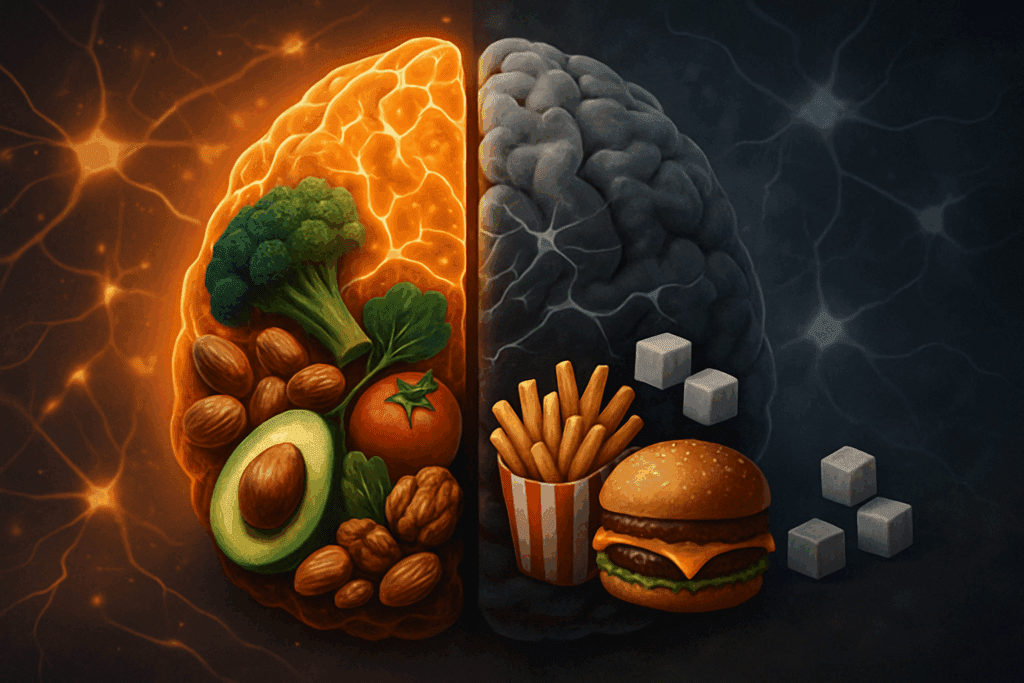
Complex Carbohydrates: The Foundation for Steady Energy
When considering the best foods for energy and concentration, complex carbohydrates deserve special mention. Unlike simple sugars, which cause rapid spikes and crashes in blood sugar, complex carbs provide a slow and steady release of glucose. Whole grains like quinoa, oats, brown rice, and barley exemplify enriching foods that support mental endurance throughout the day. They fuel the brain without the rollercoaster of mood swings associated with refined carbs. Integrating these foods into breakfast and lunch can be transformative, setting a stable foundation for prolonged alertness. Whether you’re facing a demanding workday or an intense study session, choosing complex carbohydrates can help you maintain mental agility and a positive mood.
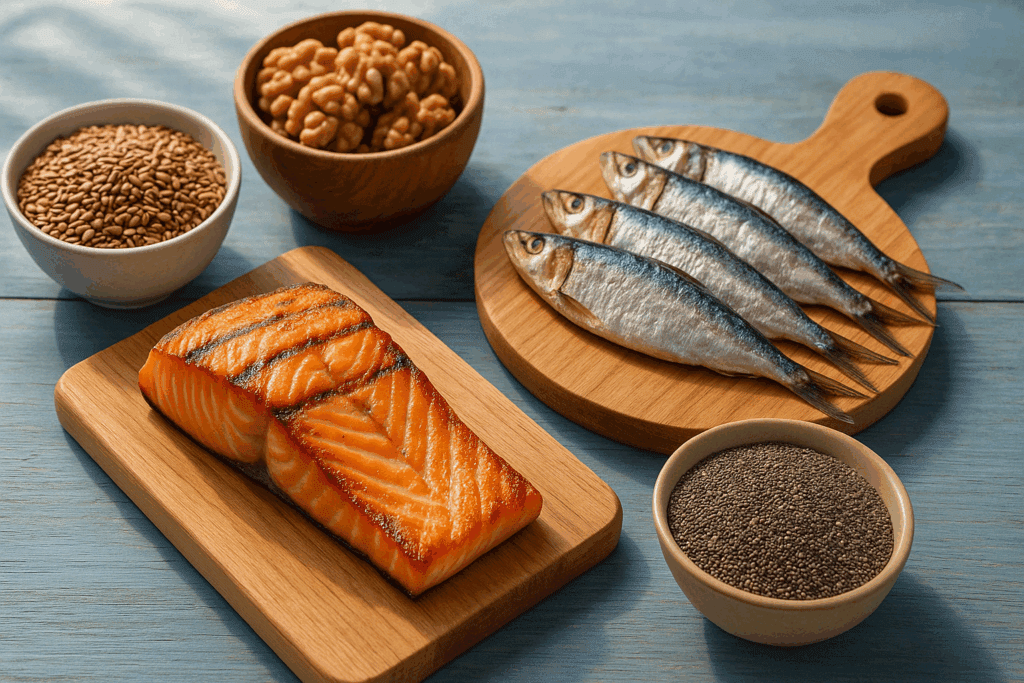
Omega-3 Fatty Acids: Essential Nourishment for Cognitive Sharpness
Another critical pillar in the quest for energy and focus is healthy fats, particularly omega-3 fatty acids. Found abundantly in fatty fish like salmon, mackerel, sardines, and plant sources such as flaxseeds and walnuts, omega-3s are integral to neuronal health. They compose the cell membranes of neurons, facilitate neurotransmission, and possess powerful anti-inflammatory properties. Numerous studies have linked higher omega-3 intake with improved memory, attention span, and even mood regulation. In exploring what foods make you alert, omega-3-rich options consistently emerge as top contenders. Incorporating these into your diet several times a week not only supports immediate focus but may also protect against cognitive decline in the long term.
Antioxidant-Rich Foods: Defenders Against Cognitive Fatigue
Oxidative stress, fueled by free radicals, is a significant contributor to cognitive fatigue and neurodegeneration. Antioxidants neutralize these harmful molecules, making antioxidant-rich foods indispensable for those seeking consistent mental energy. Berries, particularly blueberries, strawberries, and blackberries, are celebrated for their dense antioxidant content. Dark leafy greens like spinach and kale, along with vibrant vegetables like red peppers and beets, further offer powerful protection. By emphasizing these foods that increase resilience against oxidative damage, you create an internal environment conducive to mental clarity and enduring vitality. Enriching foods high in antioxidants should be daily staples for anyone committed to nurturing brain health naturally.
B Vitamins: Energizers of the Nervous System
B vitamins, including B6, B9 (folate), and B12, play critical roles in energy metabolism and nervous system support. These vitamins assist in converting food into usable energy, producing neurotransmitters like dopamine and serotonin, and maintaining healthy nerve function. Foods rich in B vitamins, such as eggs, legumes, leafy greens, and lean meats, are fundamental when aiming to identify the best foods for energy and concentration. Deficiencies in B vitamins have been associated with fatigue, irritability, and cognitive impairments, highlighting their importance. By regularly consuming B-vitamin-rich foods, you bolster your brain’s ability to operate efficiently, making it easier to maintain focus and alertness even under stress.
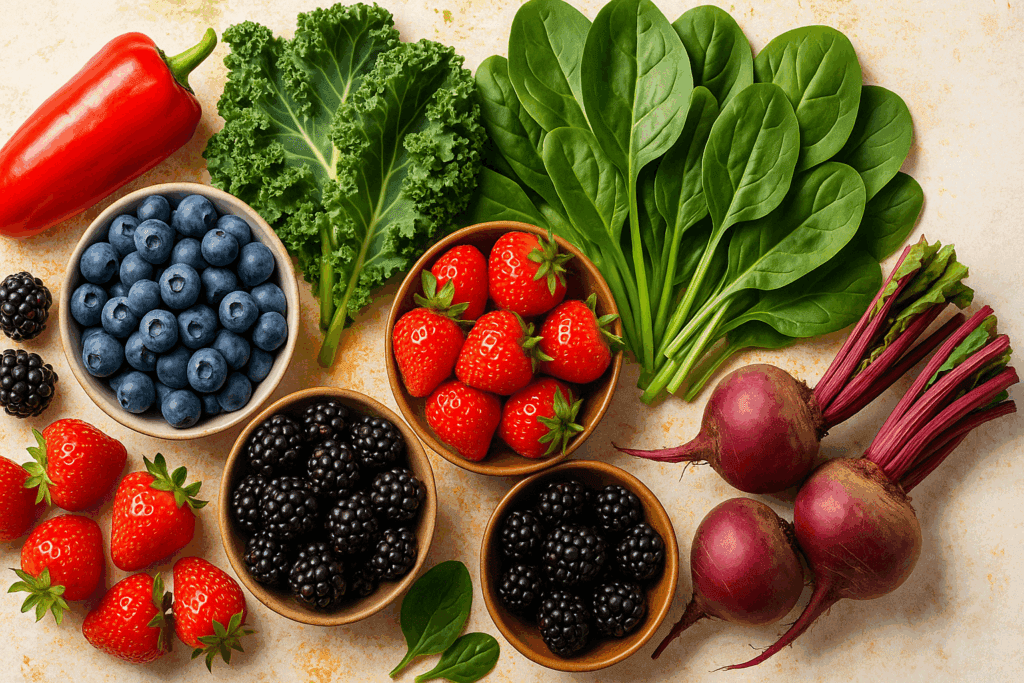
Iron: Oxygenating the Brain for Enhanced Focus
Iron is indispensable for oxygen transport throughout the body, including to the brain. Insufficient iron levels can lead to anemia, resulting in profound fatigue and mental fog. Foods that increase iron stores, such as lean red meat, spinach, lentils, and pumpkin seeds, are vital for sustaining cognitive sharpness. Women, in particular, are at higher risk for iron deficiency and should be especially mindful of their intake. When exploring what foods make you alert, iron-rich options are essential players. Consistently integrating these power foods into your diet ensures that your brain receives the oxygen it needs to perform at its best.
Magnesium: The Underestimated Mineral for Calm Alertness
Magnesium, often overshadowed by more famous nutrients, is crucial for over 300 biochemical reactions in the body, including nerve transmission and muscle function. A deficiency in magnesium can manifest as fatigue, irritability, and reduced concentration. Enriching foods such as almonds, avocado, dark chocolate, and legumes offer robust magnesium content, aiding in mental stamina. Including magnesium-rich foods that increase cognitive resilience is a subtle yet profound way to enhance daily energy levels. These foods also support a calm but alert state of mind, helping to balance the body’s stress response and prevent burnout.
Adaptogenic Herbs: Nature’s Tools for Sustained Focus
While often thought of as supplements, many adaptogenic herbs can be integrated into meals and beverages. Adaptogens like ashwagandha, Rhodiola rosea, and ginseng help the body adapt to stress, promoting steady energy without the crash associated with stimulants. Including these botanicals within teas, smoothies, or even soups can offer a natural means of increasing food synergy for focus and resilience. When discussing the best foods for energy and concentration, it is essential to recognize that adaptogens offer a time-tested, plant-based solution that fits beautifully into holistic nutrition strategies.
Hydration: Water and Electrolyte-Rich Foods for Mental Clarity
Dehydration, even at mild levels, can impair concentration, short-term memory, and mood. Ensuring optimal hydration is a foundational aspect of supporting cognitive function. While drinking water is essential, incorporating hydrating foods such as cucumber, watermelon, celery, and oranges adds another layer of protection against dehydration. These enriching foods provide electrolytes like potassium and magnesium, further supporting nerve function and mental clarity. When considering foods that increase alertness, it is vital to include those that promote fluid balance alongside traditional nutrient-dense choices.
Caffeine, Strategically Used: Natural Sources for Energy Boosts
Caffeine is a well-known enhancer of alertness, but the source and amount matter significantly. Natural caffeine sources, such as green tea, matcha, and moderate coffee intake, can provide a clean boost without the jittery crash. These beverages also deliver antioxidants and other phytochemicals that support brain health. Pairing caffeine intake with nutrient-rich meals helps sustain its benefits while minimizing potential downsides. Knowing what foods make you alert includes understanding how to strategically harness caffeine as part of a broader nutritional approach rather than relying on it as a sole energy source.
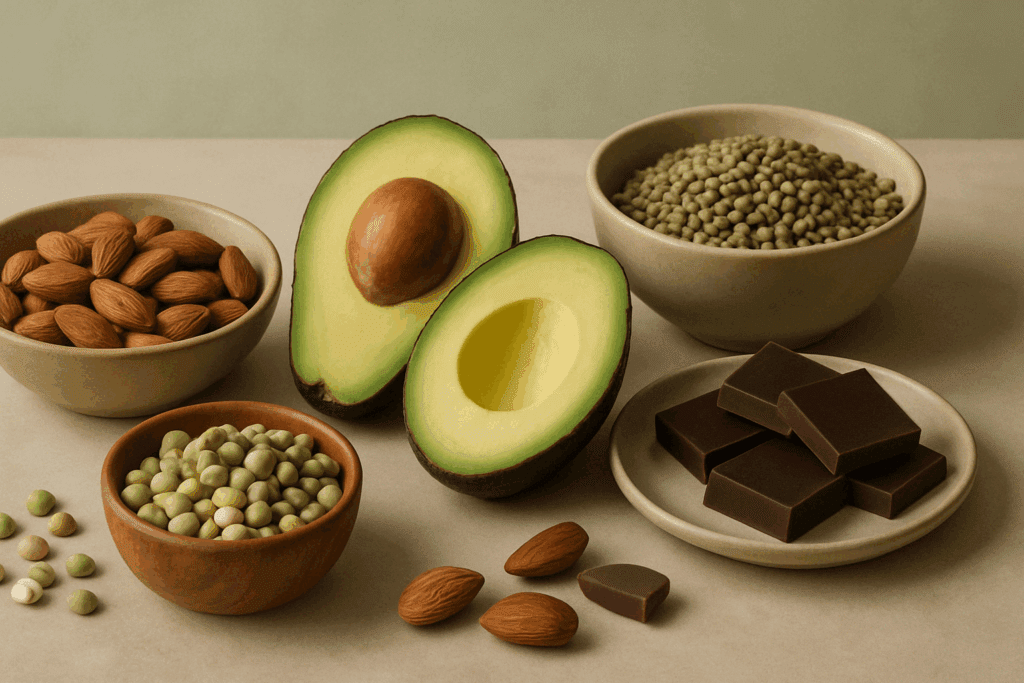
Dark Chocolate: A Sweet Ally for Focus and Mood
Dark chocolate, rich in flavonoids, magnesium, and small amounts of caffeine, offers a delightful means of enhancing mental performance. Studies suggest that the flavonoids in dark chocolate can increase blood flow to the brain, improving memory, reaction time, and problem-solving skills. Opting for high-cacao-content chocolate (70% or higher) ensures a more potent dose of these beneficial compounds. Incorporating dark chocolate into your diet as part of your power foods arsenal not only satisfies sweet cravings but also contributes to sustained focus and cognitive well-being.
Nuts and Seeds: Compact Sources of Cognitive Fuel
Nuts and seeds, including walnuts, almonds, pumpkin seeds, and sunflower seeds, are compact, nutrient-dense foods that support brain function. They offer healthy fats, protein, fiber, magnesium, and antioxidants, making them ideal snacks for boosting energy and concentration throughout the day. Studies have linked nut consumption with better cognitive performance and reduced risk of neurodegenerative diseases. Integrating a handful of these enriching foods into your daily routine provides a steady supply of nutrients essential for optimal brain function, aligning perfectly with the goal of increasing food diversity for mental clarity.
Fermented Foods: Gut-Brain Axis Enhancers for Mental Energy
Emerging research highlights the critical role of gut health in cognitive performance. The gut-brain axis represents a complex communication network between the digestive tract and the central nervous system. Fermented foods such as yogurt, kefir, sauerkraut, and kimchi are rich in probiotics that support a healthy microbiome. A balanced microbiome influences neurotransmitter production, immune regulation, and inflammation control, all of which impact mental energy and focus. Enriching your diet with these foods that increase gut resilience also enhances overall cognitive vitality, showcasing the interconnectedness of body systems.
Practical Strategies for Building a Focus-Fueling Diet
Adopting a nutrition strategy that optimizes energy and concentration requires intentional planning. Begin by ensuring each meal contains a balance of complex carbohydrates, healthy fats, and high-quality proteins. Include antioxidant-rich fruits and vegetables, and prioritize hydration with water and hydrating foods. Strategic snacks featuring nuts, seeds, or dark chocolate help maintain steady blood sugar levels between meals. Incorporating power foods regularly into your routine transforms nutrition from an afterthought into a central pillar of cognitive performance, providing sustainable and enriching energy sources throughout the day.
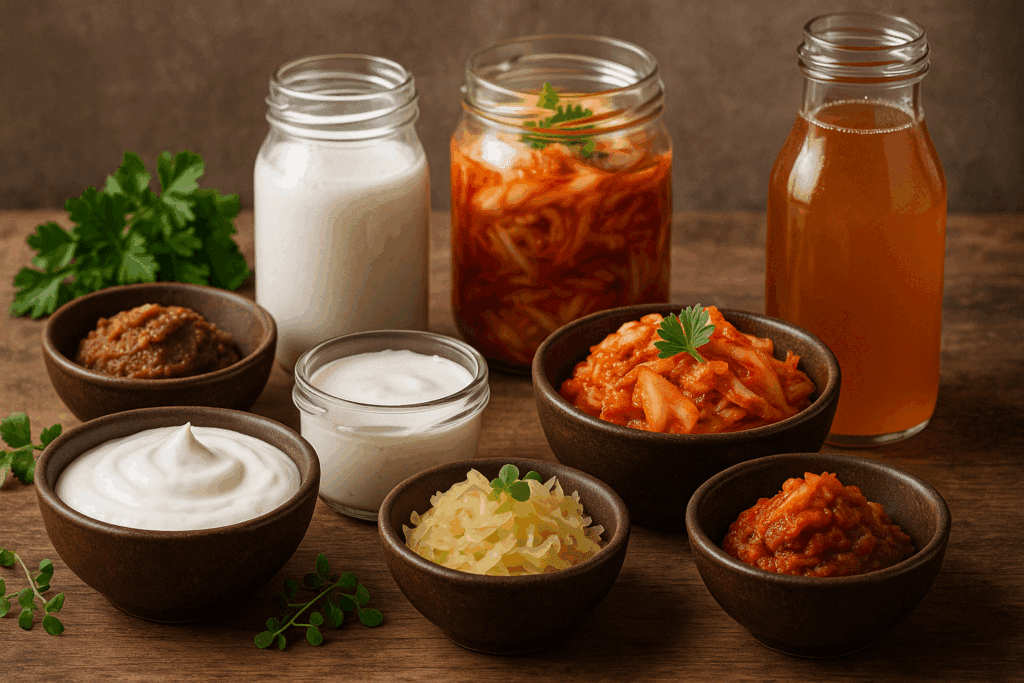
Frequently Asked Questions (FAQ) on the Best Foods for Energy, Focus, and Mental Clarity
1. How quickly can foods that increase energy and focus show noticeable effects?
The impact of foods that increase energy and focus can often be felt within a few hours, especially when they contain easily absorbed nutrients like glucose, amino acids, and certain vitamins. For example, consuming enriching foods rich in magnesium and B vitamins, such as leafy greens and nuts, may improve cognitive clarity the same day. However, achieving long-term brain health through the best foods for energy and concentration often requires consistent dietary habits. Power foods like fatty fish, berries, and eggs build cumulative benefits over weeks and months, helping strengthen neural pathways and sharpen mental alertness sustainably. While some wonder what foods make you alert almost instantly, the most lasting improvements come from daily choices that consistently nourish the brain.
2. Are there specific times of day when enriching foods are most effective for concentration?
Timing can significantly enhance the effects of enriching foods on mental sharpness. Morning meals that emphasize complex carbohydrates and proteins, such as oatmeal with almonds or eggs with spinach, provide a steady release of glucose essential for maintaining focus during peak cognitive periods. Eating the best foods for energy and concentration earlier in the day helps align nutrient availability with the brain’s natural circadian rhythm. In contrast, consuming foods that increase cognitive stamina in the afternoon, like a handful of walnuts or a green smoothie, can prevent the typical post-lunch slump. Understanding what foods make you alert at different times can optimize both immediate performance and overall brain endurance throughout the day.
3. What are some overlooked “power foods” that support focus without caffeine?
Many people default to caffeine when they think of what foods make you alert, but several power foods can sustain attention naturally. Avocados, for instance, are rich in healthy fats that improve blood flow to the brain, enhancing focus without the crash associated with stimulants. Pumpkin seeds, packed with magnesium, iron, and zinc, help regulate nerve signals and maintain steady mental energy. Another often overlooked choice among enriching foods is beetroot, which increases nitric oxide levels, promoting oxygen delivery to the brain. Including these nutrient-dense options offers a caffeine-free strategy for maintaining peak mental performance throughout the day.
4. How can someone build a personalized plan using foods that increase alertness?
Crafting a personalized plan for energy and focus starts with observing how different foods affect individual mood, cognition, and stamina. Some people find that the best foods for energy and concentration include higher-protein breakfasts, while others may benefit from more complex carbs to maintain steady glucose levels. It is important to diversify power foods across meals, including omega-3s from fish, antioxidants from berries, and magnesium from leafy greens. Tracking meals and cognitive performance for a few weeks can reveal unique patterns in how enriching foods impact personal productivity. A well-rounded strategy not only addresses what foods make you alert immediately but also builds resilience against mental fatigue over time.
5. Can enriching foods help protect against long-term cognitive decline?
Research increasingly supports that enriching foods do more than offer short-term boosts—they also help protect against cognitive aging. Diets rich in foods that increase brain resilience, such as the Mediterranean or MIND diets, have been linked to reduced risks of Alzheimer’s disease and dementia. Power foods like dark leafy greens, blueberries, and fatty fish are packed with antioxidants and anti-inflammatory compounds that defend neurons against oxidative stress. Regularly consuming the best foods for energy and concentration lays a nutritional foundation that can slow cognitive decline and preserve memory well into later life. Thus, what foods make you alert today may also determine the sharpness of your mind decades from now.
6. How do foods for energy and focus interact with exercise for better mental performance?
Exercise and nutrition form a dynamic duo when it comes to cognitive optimization. Consuming foods that increase blood sugar stability and neurotransmitter production—such as bananas, whole grains, and nuts—before a workout can amplify both physical endurance and mental clarity. After exercise, replenishing with enriching foods like Greek yogurt, berries, or a protein smoothie helps the brain recover and boosts neuroplasticity. Studies show that the best foods for energy and concentration, combined with aerobic activity, enhance the production of brain-derived neurotrophic factor (BDNF), a protein crucial for learning and memory. Integrating power foods strategically around workouts maximizes both physical performance and cognitive function.
7. Are there foods that help sustain energy and focus over long study or work sessions?
Absolutely—certain foods are uniquely effective for maintaining focus during extended periods of concentration. Low-glycemic-index foods like quinoa, lentils, and sweet potatoes provide a steady release of glucose, preventing the energy crashes that disrupt mental stamina. Meanwhile, enriching foods high in choline, such as eggs and broccoli, support neurotransmitter production critical for sustained attention. For those wondering what foods make you alert over long hours, it’s vital to combine complex carbohydrates, healthy fats, and ample hydration. A combination of foods that increase serotonin and dopamine naturally can enhance mood and motivation during demanding tasks, making endurance work feel less draining and more productive.
8. Can increasing food diversity improve mental alertness and cognitive flexibility?
Diverse diets rich in a wide variety of vitamins, minerals, and phytochemicals can dramatically enhance cognitive agility. Eating a broader spectrum of enriching foods ensures the brain receives all necessary building blocks for neurotransmitter synthesis, neuroprotection, and myelin repair. Beyond simply asking what foods make you alert, considering food variety introduces beneficial compounds like flavonoids, anthocyanins, and polyphenols. These bioactive compounds found in colorful fruits, vegetables, and herbs support cognitive flexibility, allowing individuals to adapt more easily to new challenges and think creatively. In the pursuit of the best foods for energy and concentration, diversity is a key principle that shouldn’t be overlooked.
9. How do micronutrients in power foods contribute to alertness?
Micronutrients, although needed in small amounts, are foundational for cognitive vitality. For instance, B vitamins are involved in energy metabolism and neurotransmitter production, directly influencing mental alertness and stamina. Iron, found abundantly in enriching foods like spinach and legumes, supports oxygen transport to the brain, crucial for maintaining focus. Magnesium, meanwhile, regulates neural excitation and can prevent cognitive fatigue. Those searching for what foods make you alert should prioritize micronutrient-dense options, recognizing that it’s not just macronutrients like carbohydrates and proteins, but also these subtle elements that define true power foods for energy and focus.
10. What are the biggest mistakes people make when choosing foods for energy and focus?
One common mistake is over-relying on simple sugars and caffeine for quick boosts, which can lead to rapid crashes and decreased focus later on. While sugar may provide a short burst of energy, it lacks the sustaining power that enriching foods offer through balanced macronutrient and micronutrient profiles. Another frequent oversight is ignoring hydration, even though dehydration can impair concentration as severely as nutrient deficiencies. Additionally, many people fail to consider what foods make you alert in the long term, focusing instead only on immediate results rather than building a consistent dietary pattern. Choosing the best foods for energy and concentration requires a holistic approach, integrating both short-term gains and long-term brain health goals.
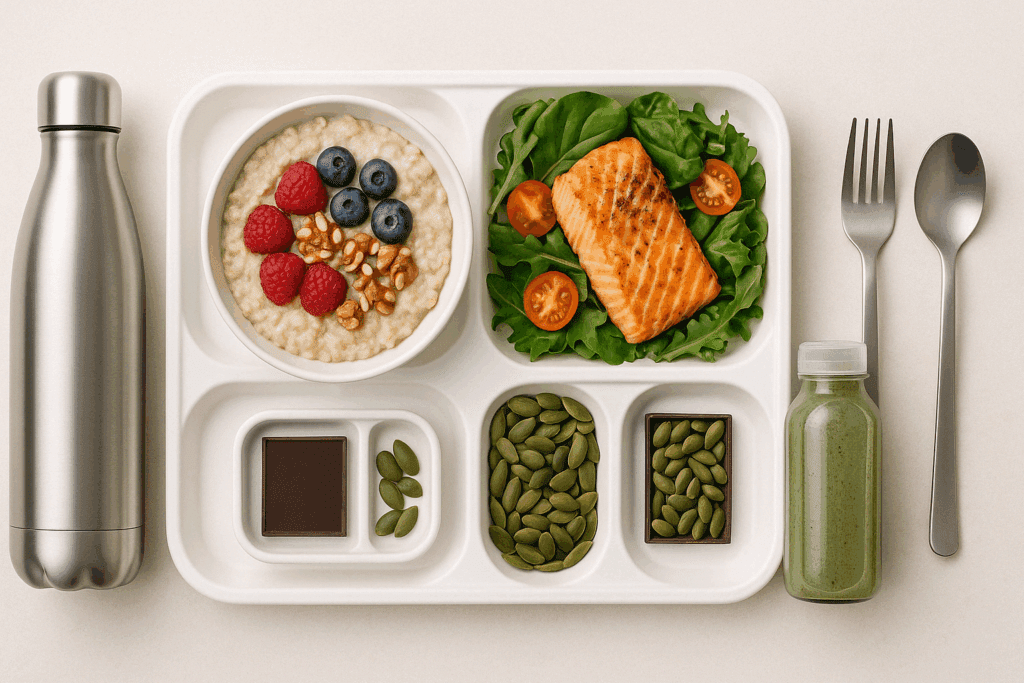
Conclusion: Harnessing the Power of Nutrition for Lasting Focus and Energy
Understanding what foods make you alert and energized empowers you to take control of your mental performance through simple, sustainable choices. By embracing power foods that support brain health, stabilize energy levels, and foster resilience, you can naturally enhance focus and alertness without relying on artificial stimulants. From the steady fuel of complex carbohydrates to the neuroprotective benefits of omega-3s, from the antioxidant richness of berries to the cognitive nourishment of fermented foods, each dietary choice compounds into a powerful foundation for mental vitality. Integrating these enriching foods into your daily life not only supports immediate cognitive benefits but also lays the groundwork for long-term brain health and overall wellness. As you build your nutrition strategy, remember that the best foods for energy and concentration are not quick fixes, but lasting allies in your pursuit of a vibrant, focused, and energized life.
Was this article helpful? Don’t let it stop with you. Share it right now with someone who needs to see it—whether it’s a friend, a colleague, or your whole network. And if staying ahead on this topic matters to you, subscribe to this publication for the most up-to-date information. You’ll get the latest insights delivered straight to you—no searching, no missing out.
Further Reading:
Food for concentration: 10 foods to help you focus
Slideshow: Brain Foods That Help You Concentrate
Best foods to eat to give you energy
Important Note: The information contained in this article is for general informational purposes only, and should not be construed as health or medical advice, nor is it intended to diagnose, prevent, treat, or cure any disease or health condition. Before embarking on any diet, fitness regimen, or program of nutritional supplementation, it is advisable to consult your healthcare professional in order to determine its safety and probable efficacy in terms of your individual state of health.Regarding Nutritional Supplements Or Other Non-Prescription Health Products: If any nutritional supplements or other non-prescription health products are mentioned in the foregoing article, any claims or statements made about them have not been evaluated by the U.S. Food and Drug Administration, and such nutritional supplements or other health products are not intended to diagnose, treat, cure, or prevent any disease.


